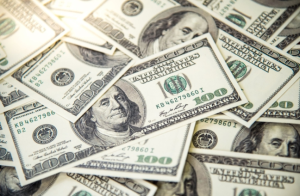
Former President Donald Trump needs to burn through trillions of dollars on tax reductions. His arrangement to pay for that is disturbing some standard business analysts.
Trump proposed clearing levies on all $3 trillion worth of imports into the US, remembering a 60% duty for imports from China and a 10% no matter how you look at it levy on imports from different countries.
As of late, Trump multiplied down on the danger, saying he is thinking about duties of up to 20% on most imports in a bid to safeguard common positions and rebuff what he names unreasonable exchanging rehearses.
In principle, the extraordinary duty climbs could raise trillions of dollars, reserves that would assist with taking care of the expense of the tax reductions. Notwithstanding, numerous financial specialists caution that those duties could misfire – seriously – by raising costs on American families, killing position and setting off a worldwide exchange war.
It’s important for the explanation Goldman Sachs in an expert note this week said Trump’s financial strategies – especially on exchange – would make America’s economy recoil. Conversely, VP Kamala Harris’ financial approach proposition would develop the economy, Goldman Sachs anticipated.
Goldman and different specialists dread Trump’s extreme proposed exchange strategies could demolish the reasonableness emergency in America.
“One of those mystical financial proposition can really cause expansion and put you into a downturn – simultaneously,” David Kelly, boss worldwide specialist at JPMorgan Resource The board, told CNN in a telephone interview.
Kelly cautioned that levies are a “wonderful stagflation machine,” take steps to scramble supply chains and welcome a rebuffing reaction from exchanging accomplices.
“It’s a two-year-old’s mindset: You punch somebody in the nose and expect them not to punch you back,” he said.
‘Awful monetary approach’
Trump intends to detail his financial vision for America during a significant location on Thursday at the New York Monetary Club.
The discourse comes as another CNN survey finds that financial issues stay the greatest worry for citizens, with a normal of 39% of likely electors across six milestone states picking it as their top issue.
Trump’s exchange proposition could be identical to a $3 trillion expense climb, cautioned Douglas Holtz-Eakin, leader of the middle right research organization the American Activity Discussion.
“It’s hugely protectionist and horrible monetary arrangement,” said Holtz-Eakin, who filled in as a financial counsel to previous President George H.W. Hedge and a guide to the 2008 official mission of GOP Sen. John McCain.
It’s difficult to tell the amount of Trump’s duty talk is an arranging strategy and the amount he expects to institute in the event that he were reappointed, noted Imprint Zandi, boss financial expert at Moody’s Examination.
“Yet, even a stage that way is risky. It’s an exceptionally poorly conceived notion. In the event that there is anything that most business analysts can settle on, it’s that taxes are awful,” Zandi said.
Trump crusade public press secretary Karoline Leavitt questioned the financial experts’ evaluations in an explanation to CNN.
“Alleged financial analysts and specialists questioned President Trump’s monetary plans in his initial term. They were discredited then, at that point, and they’ll be refuted once more… President Trump effectively forced duties on China in his initial term AND quit raising government expenditures for focused Americans here at home – and he will rehash it in his subsequent term,” Leavitt said in the articulation. “President Trump’s arrangement will bring about huge number of occupations and many billions of dollars getting back from China to America.”
Taxes could cost families $2,600 per year
Trump has supported duties as a method for aiding common Americans by safeguarding laborers from unreasonable exchange rehearses and as an arranging strategy to arrive at better economic deals. Notwithstanding, a few specialists dread they will do the inverse.
Trump’s require a 20% in all cases levy joined with a 60% tax on China would cost the run of the mill center pay family more than $2,600 every year, as per refreshed gauges distributed last month by the Peterson Organization for Worldwide Financial matters.
That is up from the specialists’ past gauge of $1,700, which depended on a 10% tax.
Critically, these evaluations don’t calculate the effect from possible unfamiliar reprisal, more slow financial development or lost intensity that a worldwide exchange war could cause. The genuine effect could be far higher.
Furthermore, the aggravation wouldn’t be uniformly split between families, the Peterson Establishment found: In spite of the fact that families in every one of the five pay quintiles would lose cash from the Trump levies and tax breaks, the least workers would be harmed the most.
“The misfortunes are most noteworthy for those at the lower part of the pay appropriation,” specialists Kimberly Clausing and Mary Exquisite wrote in an August update. “The main 1% would encounter net additions in pay since misfortunes from levies are more than offset by Trump’s proposed tax breaks.”
Trump-forced levies on imported sun powered chargers, steel and aluminum and Chinese-caused products to have cost Americans more than $230 billion, as per US Customs and Line Security.
Furthermore, US states more presented to US taxes on imports from China experienced “lower increments or even declines” in work and result somewhere in the range of 2018 and 2019, as per a review from St. Louis Central bank financial analysts.
Be that as it may, levies on Chinese products have become well known on the two sides of the path. Strikingly, the Biden-Harris organization has kept set up a large portion of the Trump-period duties. In May, President Joe Biden declared expanded duties on $18 billion worth of Chinese products, including electric vehicles, sunlight based cells and central processors.
Harris has not nitty gritty explicit designs for sloping up or toning down duties.
The expense of the Trump tax reductions
Trump has called for expanding his particular 2017 tax reductions, which terminate one year from now in the event that no move is made by Congress.
Trump has contended that broadening the tax reductions will support the economy, make occupations and help families. Nonetheless, scientists from Princeton College, the College of Chicago, Harvard College and the US Depository Division recently found that while the 2017 expense regulation supported interest in the American economy and served to humbly increment compensation, the tax breaks didn’t pay for themselves.
Regardless, expanding the tax breaks would be a costly proposition.
Broadening the singular personal expense arrangements from the 2017 duty regulation alone would cost $3.4 trillion north of 10 years, as per gauges from the impartial Penn Wharton Model. On the other hand, Harris’ financial plans would cost between $1.2 trillion and $1.4 trillion north of 10 years, as of Penn Wharton’s most recent model, which didn’t represent strategy proposition Harris made for the current week.
Trump has proposed curtailing the corporate government expenditure rate once more, dropping it from 21% to 20% or even 15%. The Penn Wharton model gauges a slice to 15% and broadening the business charge arrangements of the 2017 regulation would heap on one more $1.2 trillion in costs.
Past the tax reduction expansion, Trump has likewise proposed taking out charges on Government managed retirement benefits. That would cost $1.2 trillion more than 10 years, as per Penn Wharton.
The Trump lobby has not itemized critical spending curtails or charge climbs to balance these tax reductions.
The Penn Wharton model doesn’t consolidate the income benefits from the potential levy climbs, noticing that key execution subtleties are “absent” and forewarning that the outcomes of another exchange war could be expensive.
“While new import charges on duties could bring a few trillion bucks up in new income throughout the following 10 years, they could likewise prompt income misfortunes because of expected retaliatory activities from different legislatures and other financial elements,” the report said.







